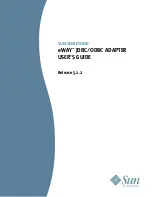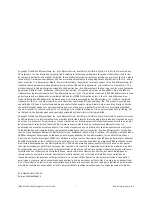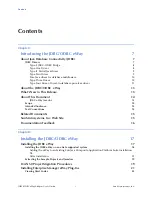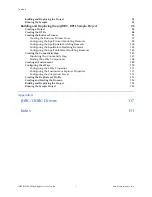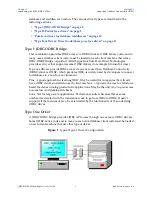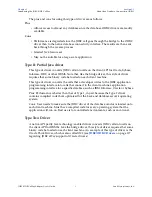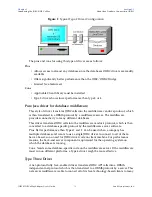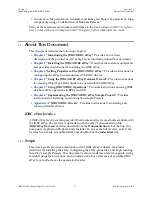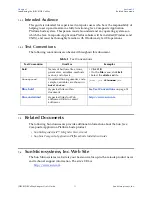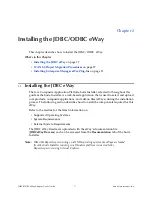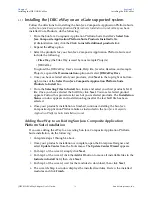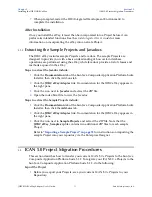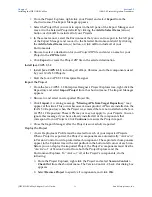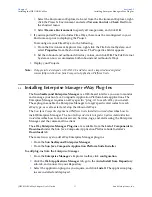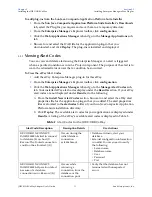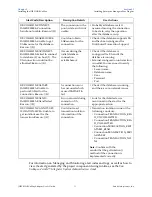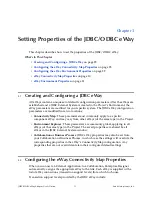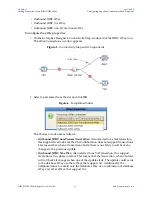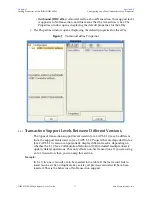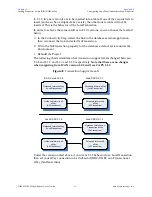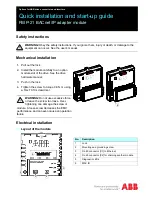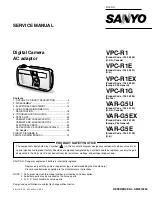
Chapter 1
Section 1.2
Introducing the JDBC/ODBC eWay
About the JDBC/ODBC eWay
JDBC/ODBC eWay Adapter User’s Guide
13
Sun Microsystems, Inc.
1.2
About the JDBC/ODBC eWay
This document describes how to install and configure the JDBC/ODBC eWay. The
JDBC/ODBC eWay enables the eGate system to exchange data with external databases.
The Sun Java Composite Application Platform Suite (Java CAPS) contains many
database eWays. You should use those eWays to interface with the databases they
support. The JDBC/ODBC eWay should only be used when you have a driver or a
database that is not supported by those eWays.
The JDBC/ODBC eWay uses Java Collaborations to interact with one or more external
databases. By using a Java Collaboration Service it is possible for eGate components
such as eWay Adapters to connect to external databases and execute business rules.
1.3
What’s New in This Release
The Sun SeeBeyond eWay JDBC Adapter includes the following changes and new
features:
New for Version 5.1.2
WebLogic Support: Supports automatic deployment of EAR files to WebLogic
Application Server version 9.1.
New for Version 5.1.1
This is a maintenance release. No new features.
New for Version 5.1.0
Version Control: An enhanced version control system allows you to effectively
manage changes to the eWay components.
Multiple Drag-and-Drop Component Mapping from the Deployment Editor: The
Deployment Editor now allows you to select multiple components from the
Editor’s component pane, and drop them into your Environment component.
Support to read configuration parameters from LDAP at runtime.
Connection Retry Support: Allows you to specify the number of attempts to
reconnect, and the interval between retry attempts, in the event of a connection
failure.
Relaunchable OTD Support: An OTD can be rebuilt and saved (under the same
name) then relaunched back to the same Java Collaboration or BPEL. This allows
you to change the metadata in an OTD without having to completely recreate the
business logic from scratch.
Editable OTD Support: An existing OTD can be edited and saved using the OTD
Wizard. This allows you to make minor changes to an OTD without having to
completely recreate the OTD from scratch. The OTD is then rebuilt, saved, and then
relaunched back to the same Java Collaboration or BPEL.

